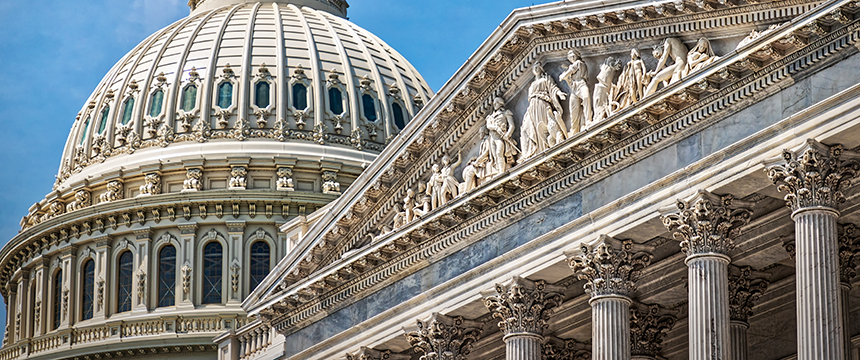
This week, Congress approved the latest coronavirus relief package to the tune of $1.9 trillion. This package is largely based off President Biden’s proposal; however, it excludes some principal policy priorities of the Biden administration, including an increase in the minimum wage to $15 per hour.
Some significant provisions within the package include:
- $1,400 direct payments to individuals making under $75,000 annually; those making up to $80,000 would be eligible for a lesser amount
- $300 per week in additional unemployment insurance benefits through September 6, 2021, totaling approximately $300 billion
- The first $10,200 in those unemployment insurance benefits will be non-taxable for households making under $150,000
- The first $10,200 in those unemployment insurance benefits will be non-taxable for households making under $150,000
- $350 billion in direct aid for state, local, and tribal governments with prohibitions on use for public pension costs or local tax relief
- $170 billion for K-12 schools (reducing class size, ventilation, sanitation, and PPE) and higher education institutions
- $46 billion for federal, state, and local COVID-19 testing and contact tracing
- $30 billion in assistance to low-income households for housing and utility costs
- $29 billion for transit agencies for payroll and operating expenses
- $25 billion in targeted relief for “small and midsized” restaurants
- $14 billion for vaccine distribution and administration
- $10 billion for the creation of a Coronavirus Capital Projects Fund for payments to States, territories, and tribal governments for “critical capital projects” in response to COVID-19
- $7.25 billion in new PPP loan funds
- $4 billion in aid to the agriculture industry and for distribution of agriculture commodities to individuals in need
- $1.7 billion for transit projects under the Federal Transit Administration capital investment grants program
In addition to these and other funding items, the bill includes a number of healthcare-related provisions such as subsidies for health insurance for the unemployed and encouraging states to expand Medicaid under the Affordable Care Act (ACA). This would be the first expansion of ACA subsidies in over 10 years. Finally, the bill includes provisions to aid multi- and single-employer pension plans to avoid insolvencies.
COVID-19 continues to impact companies in all sectors of the economy. Foley is here to help our clients effectively address the short-term and long-term impacts on their business interests, operations, and objectives. Foley provides insights and strategies across multiple industries and disciplines to provide timely perspective on the wide range of legal and business challenges that companies face conducting business while dealing with the impact of the coronavirus. Click here to stay up to date and ahead of the curve with our key publications addressing today’s challenges and tomorrow’s opportunities. To receive this content directly in your inbox, click here and submit the form.